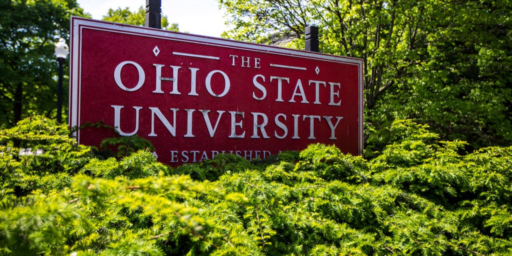Government Employees Spent $146M on Flight Upgrades
Senior government employees spent a nominal amount of money upgrading official flights from coach, the GAO has found.
Federal employees wasted at least $146 million over a one-year period on business- and first-class airline tickets, in some cases simply because they felt entitled to the perk, congressional investigators say.
A draft report by the Government Accountability Office, obtained Tuesday by The Associated Press, is the first to examine compliance with travel rules across the federal government following reports of extensive abuse of premium-class travel by Pentagon and State Department employees. The review of travel spending by more than a dozen agencies from July 1, 2005, to June 30, 2006, found 67 percent of premium-class travel by executives or their employees, worth at least $146 million, was unauthorized or otherwise unjustified. Among the worst offenders: the State Department, whose employees typically fly abroad on official business.
Many of the cases involved high-ranking senior officials or political appointees who claimed exceptions to federal travel rules by citing old medical records or questionable approval from a subordinate employee.
Investigators found that senior officials often flew business- or first-class because they felt entitled to the perk. The higher airfare for traveling in one of the premium classes resulted in expenses often five to 10 times more than what was authorized under government travel rules.
“With the serious fiscal challenges facing the federal government, agencies must maximize their ability to manage and safeguard valuable taxpayers’ dollars,” investigators wrote, suggesting agencies recoup the extra cost from those who abuse travel policies.
Under federal rules, government employees generally must fly coach for both domestic and international travel unless the flight takes 14 hours or longer. A few exceptions apply when the employee receives agency approval based on a medical condition, security concerns, lack of availability of coach seats or when required “because of agency mission.”
Now, certainly, senior employees ought to know the rules and they definitely should obey them. If they’re not entitled to fly comfortably, then they’re not entitled.
Still, while I’m often outraged (or at least mighty annoyed) at fraud, waste, and abuse by the federal government, my main reaction here was more along the lines of: Senior government employees aren’t allowed to fly business class on official business? You’re kidding me?
We’ve trying to attract high caliber people to work for the government, presumably. And, with relatively rare exception (mostly in the DC area), senior folks (which, since it’s not clear from this report, I’ll define as GS-13 and up, the equivalent of field grade officers in the military) are middle aged people for whom being crammed into coach seats for more than about fifteen minutes is going to be uncomfortable. And we expect them to arrive at their destination ready to perform their duties. So, why aren’t we treating them accordingly?
For that matter, why don’t the feds have a way to let its employees accumulate frequent flier points so that they can get free upgrades?
And how much did the government spend on this investigation, anyway?






Since this is a “draft report” and not a “published report” I would be wanting to know who the mole is. The published report will detail the level of the officials, my guess is they are SES and GOs, maybe some GS15 types, but they are a dime a dozen in the DC area.
Point of fact: In the National Defense Authorization Act for Fiscal Year 2002. (Section 1116) Defense employees where given the right to retain promotional items, including frequent flyer miles, earned on official travel. In the same year all Approipration Acts carried across the same language giving all federal employees the right to retain promotional points.
As Lisa above correctly points out above gov’t employees and military types are allowed to accumulate frequent flier miles for travel on the taxpayer dime.
Only $146 million! Our taxpayer dollars hard at work. Can’t we just throw all government officials out and start all over?
My first thought upon reading the original article was remembering 4, avg. 20 hr. each, Greyhound trips I made last spring, & thought,”Poor Babies!” I would rather fly coach any day.
Second thought: They know the rules & broke them. Time for the treasury (us) to be reimbursed.
Third thought: You make a good point about maybe it should be a perk of the position & being more functional for the job after the trip. Fine. Change the rules, & make it clear who is eligible for what perks. Another help would be a contract for a set price, or discount, for all government travel, since the govt is undoubtedly their largest customer.
Fourth thought. Frequent flier miles are a side issue as you can bet your bottom frequent flier mile that they are not used for official business. And that is OK if the regs allow it.
US Ambassadors are permitted to fly First (or Business, if First isn’t available), at government expense, when first arriving in the country to which they’ll be accredited and upon their final departure from that country. Otherwise, they fly economy.
Very often, airlines will give them a complementary upgrade. They never know, after all, when they may need him to haul their asses out of some fire.
Emergency situations might permit an official traveler to upgrade to First or Business if that’s the only seat available, but it’s not a substitute for bad planning.
State officers can fly business if their travel will exceed 16 hours in total or they can chose to break their travel with an overnight somewhere en route, if available.
For most of the history of ‘flight miles’, officers could not use them to upgrade. Instead, they were somehow supposed to be turned over to the travel office which would make wise use in obtaining cost-free flights for other travelers. Or something like that. But since miles are non-transferable, that didn’t work out very well. That’s why the law changed in 2002, permitting upgrades.
Oh… I just remembered: If a State officer is medically evacuated by the DOD, that officer is billed for the cost of the flight, crew, and medical supplies. He also gets to pay the gas bill. My medevac from Damascus to Weisbaden totalled over $14K, with the $780 gas bill coming in a few months later.
This is exactly why we need Blackwater. They can just commandeer a plane and the political appointees can fly for free. No questions asked.
Having subcontracted on State Dept. contracts, I can tell you the business class travel deals were gone in the mid-90s, victim of Al Gore’s reinventing government. Occasionally a contractor got me a deal by some arrangement they had with the airline, but under no circumstances could you bill a business class ticket if the economy class ticket was cheaper.
I do use frequent flyer miles for upgrades. Nobody has ever asked for my miles from a paid ticket.
Remember the CIA agents the Italians want for taking the terrorist suspect out of Italy.
They used their real names when getting airline tickest so they could claim the frequent flier miles.
That’s one of the ways the Italians figured out who the wanted. What a perk.
James Joyner, I don’t know who you are or what your familiarity is with the federal government, but you seem pretty off base to me. You think a GS-13 or a Major/Lt Colonel is “high-ranking” folk? Penny a dozen. We don’t need to recruit these people, in fact we can’t get rid of them. Give them business class and they’d never leave. As a taxpayer (and GS-14) I would never authorize upgraded travel for anyone. Four-stars and federal judges have an exception for 1st class because they’re “always working” but then, four stars usually have their own luxurious planes that rival anything Bill Gates uses.
Another help would be a contract for a set price, or discount, for all government travel, since the govt is undoubtedly their largest customer.
I don’t know if the government would be their largest customer, but I think taking bids for a set price would probably be a huge money saver for the government and a boon for the airline that won the contract.
I think the only problem is that a specific airline may not always be able to guarantee a seat, but they could probably write emergency contingencies into the contract.
Upgrading with frequent flier miles is one thing, but upgrading and billing the taxpayer is another, and IMO is out of line.
That’s only true in the NCR. Get outside the DC area, GS-13s are likely the highest ranking civil servant around. And Lt. Cols and Commanders are gods on most installations, commanding large numbers of troops and tens of millions in equipment.
Around here, of course, that’s not the case. As they say, colonels assigned to the Pentagon fetch coffee. GS-13s and GS-14s do jobs that GS-9s and GS-11s do in Missouri.
Even so, they’re certainly as senior, if not more so, than the types of people who fly business class for corporations and law firms.
The government does indeed have contract fares negotiated with airlines. GSA has negotiated fares for “city pairs” . But these are not competitive with the lowest fares, as they are fully refundable and you can book at the last minute. In most cases, they are quite expensive (for example, Washington National to Dayton Ohio is about $500 one way).
Government employees who think they are entitle to “perks” at taxpayer expense should seek employment in private industry. Government service should be a calling (I’m a govvie) and service to country and society should be the primary motivation, not the rewards of perks or privileges.
At about half the companies I’ve worked for, even the CEOs flew coach (unless on their own dime).
It’s pretty hard to get worked up about a bit of government employee waste, fraud, and abuse after we lost track of $9 billion in cash in Iraq and no one seemed to care.
“Government service should be a calling (I’m a govvie) and service to country and society should be the primary motivation, not the rewards of perks or privileges”.
Very idealistic DC. In reality, government jobs are often thankless and very demanding. “Perks and privileges” are ways to make the employees more efficient. They also work to attract quality people who want to be appreciated for their efforts…remember the saying – you get what you pay for.
Frank, believe me, if your idea of “perks and privileges” are to work in a cubicle and have no parking for your car, then government work is right up your alley. But we still have many very bright people knocking down our doors to get in. I agree the pay’s not bad, but moreover it’s the kind of work and the impact you can have that simply isn’t available in the private industry.
DC, but once a bright one gets in the door you have to keep him in…demanding work w/o resources weeds out the talent.
If that’s the case, having to fly coach on TDY is the least of our problems. I would much prefer a more pleasant work atmosphere, IT that works, and the availability of parking and telecommuting.
“DC Loser,” I think your tag probably says it all about your attitude and abilities. I doubt you could hack it in the private sector. Every company I’ve worked with, or for, in the last 20 years allowed employees to fly business class on long trips (typical >8 hours).
For some people the public sector may be a “calling,” but in the real world you have to find and retain high quality people. Treating them like second-class citizens doesn’t help.
Do only second class citizens fly coach?
As I said, every company I’ve worked for in the last 20 years (Dell, Cisco, Goldman Sachs, and a two start ups) allows business-class travel on long flights. Draw your own conclusions.
I fly coach on personal trips, but that’s by choice 2-3 times / year … not 25-30 times / year because I have to.